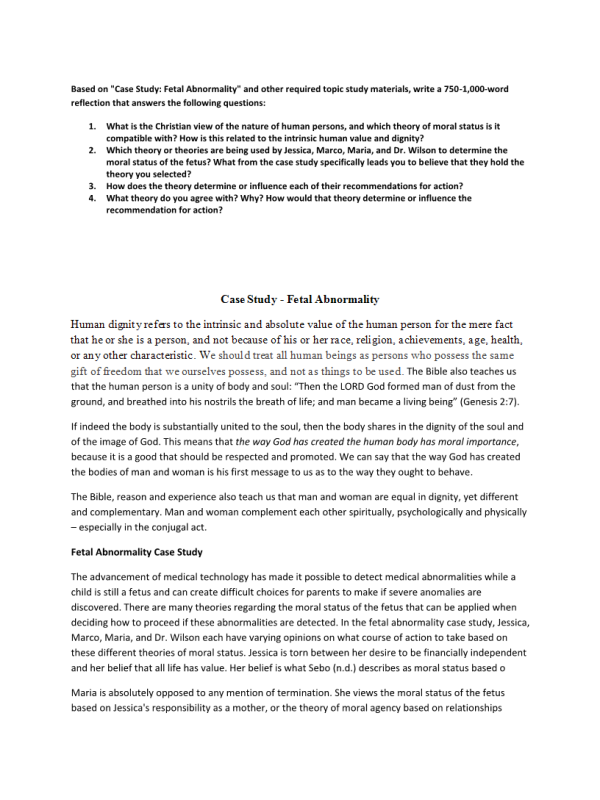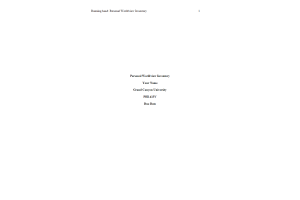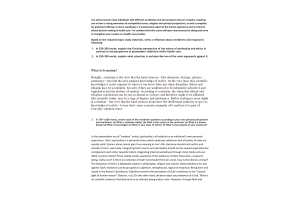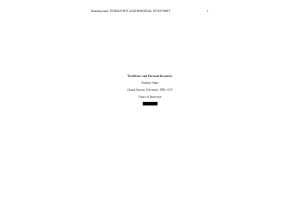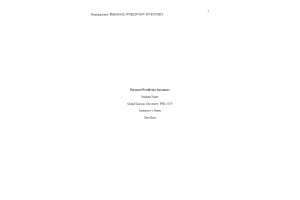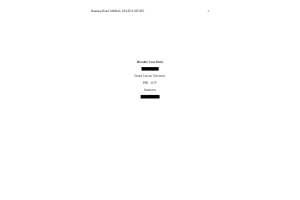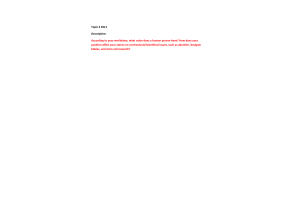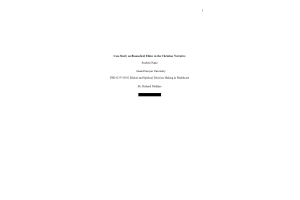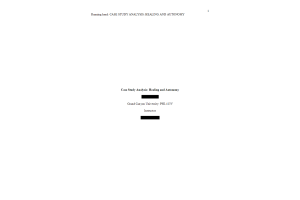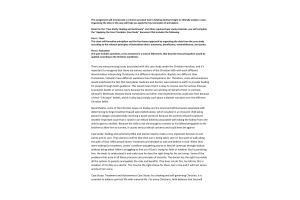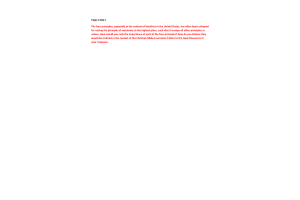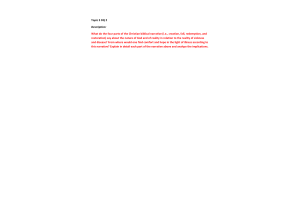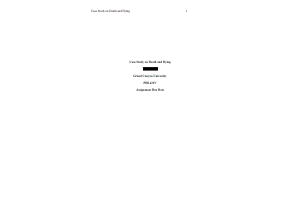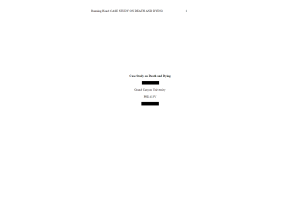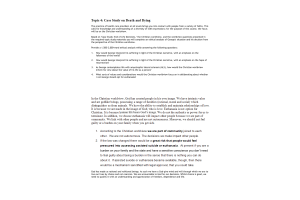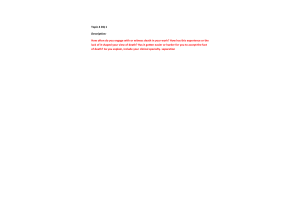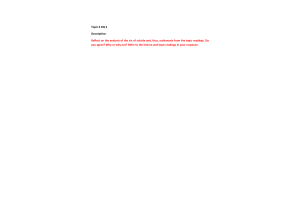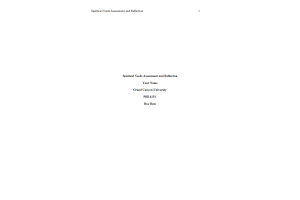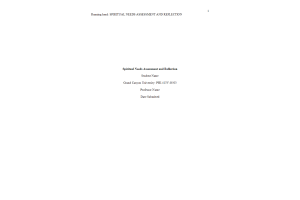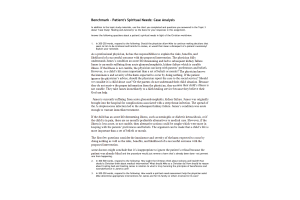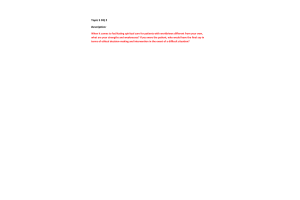PHI 413V Topic 2 Assignment; Case Study - Fetal Abnormality
- $20.00
Content Preview
Human dignity refers to the intrinsic and absolute value of the human person for the mere fact that he or she is a person, and not because of his or her race, religion, achievements, age, health, or any other characteristic. We should treat all human beings as persons who possess the same gift of freedom that we ourselves possess, and not as things to be used. The Bible also teaches us that the human person is a unity of body and soul: “Then the LORD God formed man of dust from the ground, and breathed into his nostrils the breath of life; and man became a living being” (Genesis 2:7).
If indeed the body is substantially united to the soul, then the body shares in the dignity of the soul and of the image of God. This means that the way God has created the human body has moral importance, because it is a good that should be respected and promoted. We can say that the way God has created the bodies of man and woman is his first message to us as to the way they ought to behave.
The Bible, reason and experience also teach us that man and woman are equal in dignity, yet different and complementary. Man and woman complement each other spiritually, psychologically and physically – especially in the conjugal act.
Fetal Abnormality Case Study
The advancement of medical technology has made it possible to detect medical abnormalities while a child is still a fetus and can create difficult choices for parents to make if severe anomalies are discovered. There are many theories regarding the moral status of the fetus that can be applied when deciding how to proceed if these abnormalities are detected. In the fetal abnormality case study, Jessica, Marco, Maria, and Dr. Wilson each have varying opinions on what course of action to take based on these different theories of moral status. Jessica is torn between her desire to be financially independent and her belief that all life has value. Her belief is what Sebo (n.d.) describes as moral status based o
Maria is absolutely opposed to any mention of termination. She views the moral status of the fetus based on Jessica's responsibility as a mother, or the theory of moral agency based on relationships (GCU, 2015). This theory states that a person must not interfere with another person or must respect their rights because they have a relationship with them (GCU, 2015; Jaworska & Tannenbaum, 2013). For example, the relationship between a parent and their child, or in this case their fetus, provides a particularly strong case for a parent not to kill their child or abort their fetus (Jaworska & Tannenbaum, 2013). Aside from the relationship of Jessica and her fetus which may prevent her from terminating, this theory is also applicable in this case to Marco and Jessica, as he is going to support any decision that she makes based on their relationship. It can also be applied to the physician-patient relationship, so Dr. Wilson must respect Jessica's and Marco's rights as parents and their choice because of their relationship. Because moral status has to do with which beings have value or rights, I tend to agree with the theory of sentience. I believe that animals do have rights, especially in terms of biomedical ethics and research. I may, however, seem hypocritical in this belief because I am not a vegetarian. But in this case, based on this theory I would be likely to terminate the pregnancy at this early stage due to the severe disability and likelihood for.......... Continue
